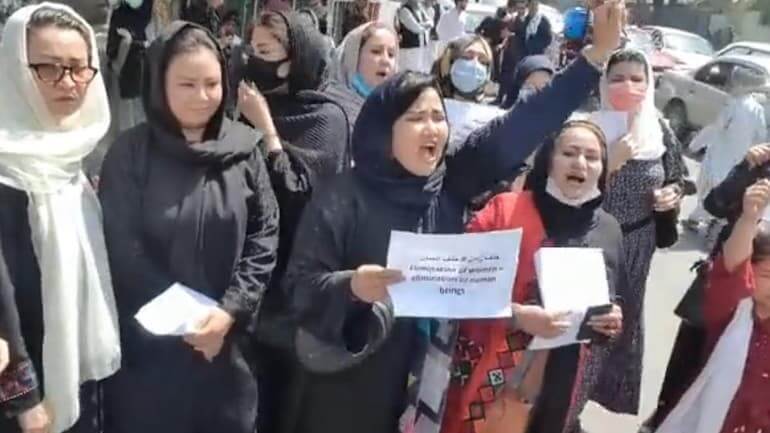

No outing for women without male chaperone: Taliban diktat in Afghanistan
In their first stint in power in Afghanistan, the Taliban succeeded in making women almost invisible. This time around, the Taliban, which had promised a softer rule, has clearly gone back on their word and people's worst fears are coming true, as the authorities continue to clamp down on the movements of women and girls in the country. The rights of women are gradually dwindling as secondary schools remain closed for girls, and many Afghan women are unable to return to their workplace.

In their first stint in power in Afghanistan, the Taliban succeeded in making women almost invisible. This time around, the Taliban, which had promised a softer rule, has clearly gone back on their word and people’s worst fears are coming true, as the authorities continue to clamp down on the movements of women and girls in the country.
The rights of Afghan women are gradually dwindling as secondary schools remain closed for girls, and many women are unable to return to their workplace.
Protests by women are being ruthlessly suppressed as well. The disappearance of women’s rights activist 29-year-old Forouzan Safi, a civil rights advocate and an economics lecturer in the northern Afghan city of Mazar-e-Sharif, whose body was later found riddled with bullets last month have shaken up activists. This appears to be the first known death of a women’s rights defender since the Taliban swept to power almost three months ago, said an international news report.

With this alleged assassination, the Taliban has succeeded in creating fear and horror among families to stop their women, girls, daughters and wives from protesting. The Taliban, activists believe, hates educated young minds, especially if these voices are female.
On Sunday (December 26), the Taliban fired another salvo by issuing a rule that women who are travelling for distances more than 45 miles (75 km), would not be offered a ride unless they are accompanied by a close male relative. The guidance originated from the Ministry for the Promotion of Virtue and Prevention of Vice. Also, vehicle owners were told not to offer rides to women who were not wearing Islamic hijabs.
The ministry had also asked women TV journalists to wear hijabs while they were on air. However, according to media reports, for the Taliban the hijab could mean not just a hair scarf but also a face veil or a cover for the entire body.
Also read: Afghanistan under Taliban in danger of slipping into ‘black hole’
The new guidance for women having to be accompanied by a male relative for distances beyond 75 km, has been widely circulated on social media networks. Earlier, Afghanistan’s television channels were told to stop showing dramas and soap operas with women actors.
When the Taliban came to power, it had promised to respect women and allow them to participate in public life “in accordance with Islamic law”. Though the Taliban said that they are not against women pursuing their education or jobs, they have asked all women, except those in the public health sector, to stay away from work, until the security situation improves.
Many Afghan women fear that they will be forcibly made invisible again like it happened to them when the Taliban controlled Afghanistan from 1996 to 2001. At that time, women were forced to wear the all-covering burqa, and only allowed to leave home with a male chaperone and banned from work and education.
Since mid-August, women have held regular, nationwide protests against the Taliban, demanding that their rights be restored and protected. In September, Afghan women took to the streets to protest across several cities. ‘We want equal rights, we want women in government’, chanted the dozens of female protesters after the Taliban had abolished the women’s affairs ministry and there were no women in the interim cabinet.
But the protests have been harshly suppressed with tear gas and the women were beaten up. Today, media reports stated that barely a day passes in Afghanistan without women’s rights further shrinking.
However, activists continue to cling to the hope that the Taliban’s battle to gain international recognition and get aid flowing back into one of the poorest countries in the world will force them to make concessions to women. Respect for women’s rights has repeatedly been cited by key global donors as a condition for restoring aid.
Moreover, the economy is collapsing because of the loss of international aid, and cold winter temperatures have arrived. According to the World Food Programme, 95 per cent of Afghans don’t have enough food. Will the economic reality force the Taliban to bend on allowing women to exercise their rights?


